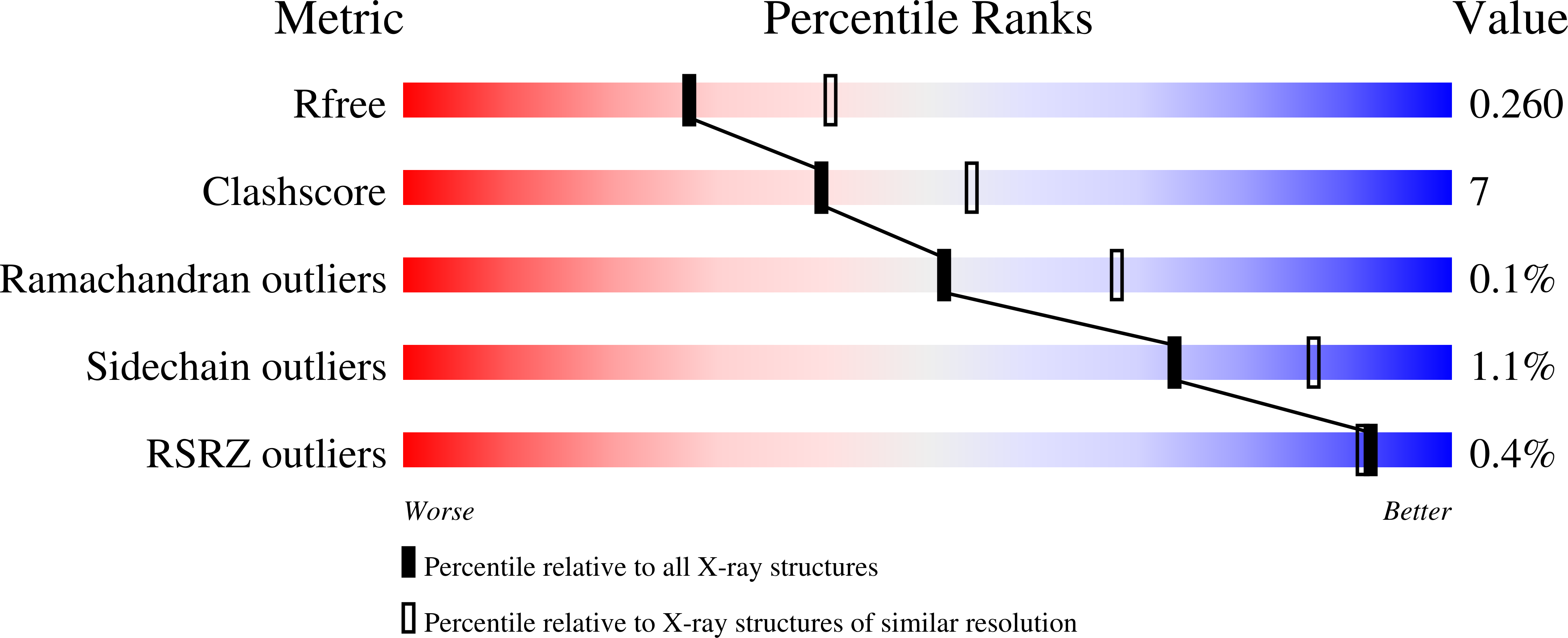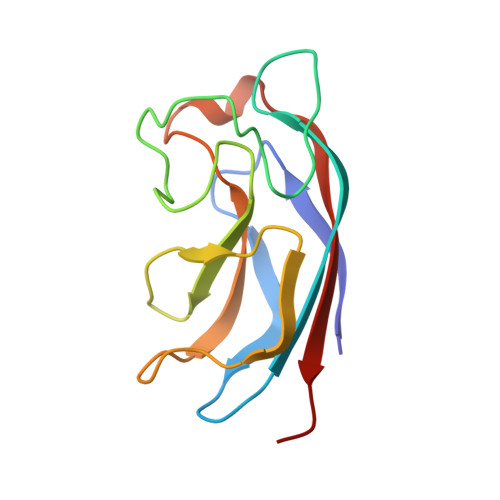Role of Water Molecules in Structure and Energetics of Pseudomonas Aeruginosa Lectin I Interacting with Disaccharides.
Nurisso, A., Blanchard, B., Audfray, A., Rydner, L., Oscarson, S., Varrot, A., Imberty, A.(2010) J Biological Chem 285: 20316
- PubMed: 20410292
- DOI: https://doi.org/10.1074/jbc.M110.108340
- Primary Citation of Related Structures:
2WYF - PubMed Abstract:
Calcium-dependent lectin I from Pseudomonas aeruginosa (PA-IL) binds specifically to oligosaccharides presenting an alpha-galactose residue at their nonreducing end, such as the disaccharides alphaGal1-2betaGalOMe, alphaGal1-3betaGalOMe, and alphaGal1-4betaGalOMe. This provides a unique model for studying the effect of the glycosidic linkage of the ligands on structure and thermodynamics of the complexes by means of experimental and theoretical tools. The structural features of PA-IL in complex with the three disaccharides were established by docking and molecular dynamics simulations and compared with those observed in available crystal structures, including PA-IL.alphaGal1-2betaGalOMe complex, which was solved at 2.4 A resolution and reported herein. The role of a structural bridge water molecule in the binding site of PA-IL was also elucidated through molecular dynamics simulations and free energy calculations. This water molecule establishes three very stable hydrogen bonds with O6 of nonreducing galactose, oxygen from Pro-51 main chain, and nitrogen from Gln-53 main chain of the lectin binding site. Binding free energies for PA-IL in complex with the three disaccharides were investigated, and the results were compared with the experimental data determined by titration microcalorimetry. When the bridge water molecule was included in the free energy calculations, the simulations predicted the correct binding affinity trends with the 1-2-linked disaccharide presenting three times stronger affinity ligand than the other two. These results highlight the role of the water molecule in the binding site of PA-IL and indicate that it should be taken into account when designing glycoderivatives active against P. aeruginosa adhesion.
Organizational Affiliation:
Centre de Rech¨¨rche sur les Macromol¨¦cules V¨¦g¨¦tales-CNRS (affiliated with Universit¨¦ Joseph Fourier and Institut de Chimie Mol¨¦culaire de Grenoble), BP 53, 38041 Grenoble Cedex 9, France.



















